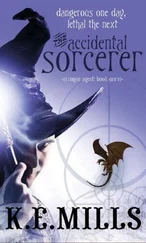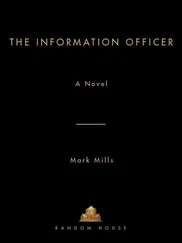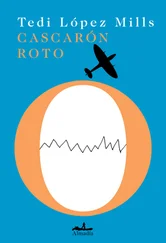Mark Mills - Amagansett
Здесь есть возможность читать онлайн «Mark Mills - Amagansett» весь текст электронной книги совершенно бесплатно (целиком полную версию без сокращений). В некоторых случаях можно слушать аудио, скачать через торрент в формате fb2 и присутствует краткое содержание. Жанр: Старинная литература, на русском языке. Описание произведения, (предисловие) а так же отзывы посетителей доступны на портале библиотеки ЛибКат.
- Название:Amagansett
- Автор:
- Жанр:
- Год:неизвестен
- ISBN:нет данных
- Рейтинг книги:5 / 5. Голосов: 1
-
Избранное:Добавить в избранное
- Отзывы:
-
Ваша оценка:
- 100
- 1
- 2
- 3
- 4
- 5
Amagansett: краткое содержание, описание и аннотация
Предлагаем к чтению аннотацию, описание, краткое содержание или предисловие (зависит от того, что написал сам автор книги «Amagansett»). Если вы не нашли необходимую информацию о книге — напишите в комментариях, мы постараемся отыскать её.
Amagansett — читать онлайн бесплатно полную книгу (весь текст) целиком
Ниже представлен текст книги, разбитый по страницам. Система сохранения места последней прочитанной страницы, позволяет с удобством читать онлайн бесплатно книгу «Amagansett», без необходимости каждый раз заново искать на чём Вы остановились. Поставьте закладку, и сможете в любой момент перейти на страницу, на которой закончили чтение.
Интервал:
Закладка:
That’s when he felt the downward drag—the weight of the water filling his waders—and he knew then that he was done for. Even if he hadn’t been ensnared by the trawl, it was too late to kick them off. And as he sank away, his lungs gave up the fight, allowing the ocean to flood in.
There was no tunnel, no shining light to guide his path. Nor was there any pain. Only blackness, sudden and absolute.
The Kemp crew was fishing just to the east, and it was Rollo—relegated to the beach as always—who was first to arrive on the scene. He pulled Conrad’s father, unconscious but alive, from beneath the dory and dragged him up beyond the wash. Seeing that the other rescuers were still some distance off, stumbling along the shore, Rollo stripped off his oilskins and his waders and struck out through the breakers. It was a foolhardy thing to do, suicidal even—he must have known that just as well as the next man—yet he managed to snatch at some lines of cod trawl before being driven back by the cold and the surf.
So it was that Rollo hauled Conrad’s lifeless body from the ocean, reeling him in, hand over hand, oblivious to the hooks tearing at his bare hands, his flesh. He later claimed that he’d only done as his grandfather, Cap’n Josh, had once instructed him: forcing the drowned man’s knees to his chest and bearing down hard on his midriff.
Conrad came to, the last of the water convulsing from his lungs, to find Rollo’s blurred face filling his field of vision.
‘Hello,’ said Rollo through chattering teeth, while rubbing Conrad furiously with his hands.
It soon became clear that Antton was lost. They searched for his body, handlining with grappling hooks, setting gill nets straight offshore and hauling seine. At midday the swell picked up again, dangerously so, and even Conrad’s father was obliged to concede defeat.
Conrad was warming himself at Doc Meadows’ hearth, nursing a mug of steaming broth, Maude at his side, when his father showed up. That’s when Conrad saw the look, the one that said more than any words: ‘You were to blame.’
It was a fleeting moment, and the question of Conrad’s responsibility for the tragedy was never once voiced by his father. Indeed, he laid the blame squarely at the feet of that freak sea. But Conrad always knew what he believed in his heart, and it stood between them like a mountain range shrouded in mist.
Two services were held for Antton—one a memorial, the other a burial some three weeks later, when a few scraps washed ashore near Gurney’s Inn. During this period there was not one day when Conrad’s father didn’t walk the beach, searching for the remains of his firstborn son.
Close-knit as they were, the fishing families were hit hard by Antton’s death. But things picked up again, as they had to. Come May, when the first of the striped bass appeared and struck in at the beach, Conrad found himself hauling seine again, with Sam and Billy Ockham making up the rest of their crew.
Conrad’s father shrugged off his mantel of gloom. Conrad did his best to mimic the charade, but it was over a year before he was able to visit Antton’s grave, by which time the arguments for and against America’s entry into the war were on everyone’s lips. Pearl Harbor settled the matter. Conrad was drafted and ordered to report to Camp Upton at Yaphank. The day his parents saw him off at East Hampton railroad station he sensed it was the last time he’d ever see his father.
The letter from Maude arrived during his recuperation at Barton Hall in England. Conrad had recovered sufficiently in the eyes of his doctors to be allowed out from time to time, along with a couple of the other patients. He carried the letter with him on the bus to Norwich, opening it in the shady cool of the Cathedral cloister while his two companions prayed inside.
He felt curiously removed from the words on the page—the stomach pain, the diagnosis of cancer, his father’s sudden decline. Maude said she was putting the house on the market, but that she would deposit the greater part of the proceeds with the Osborne Trust Company for his use. Her brother had suggested she join him in California. He was wealthy, quite capable of supporting her, and she intended to take up teaching again. She urged him to reconsider a college education on his return, to which end she would be leaving him her library of books.
He could tell from the deterioration of her normally neat italic hand that she was devastated and fighting hard to hold herself together.
When his companions joined him in the cloister, Conrad made some excuse and went in search of a pub. He drank several pints of strong Norfolk ale then picked a fight with a loud American bombardier on twenty-four-hour stand-down from one of the local airbases.
It was a few weeks before he realized that the greatest fear of his childhood had finally come to pass, that as he waited in line at Ellis Island, fresh off the boat from France, the doctor had indeed marked him with that stick of blue chalk, leading him away, never to see his father and Antton again.
It came to him then that he was alone in the world.
Conrad woke with a start, orienting himself. He brushed the straw from his clothes and climbed down the ladder from the hayloft. He had planned on slipping away a little before daybreak, but the morning sun was already casting long shadows in the garden as he crept from the barn.
He could make out the sounds of the doctor and his family stirring in the house, obliging him to duck below the level of the window sills as he left.
He felt sharp, alert, which was good. The sleep had helped, sweet and unexpected.
He asked Earl Griffin to drop him off at the head of the track, and he settled the fare.
He saw the tire marks in the sand immediately. Closer examination revealed that there were two sets—the same vehicle coming and going, suggesting that the visitor had left. But his hand still closed around the gun in his hip pocket as he set off through the pitch pines towards his house.
The vehicle had pulled to a halt just before the trees gave way to the dunes. The track was too narrow at this point to turn a motor car around, and the visitor had been obliged to reverse it back to the highway, but not before abandoning it first and continuing on foot.
The footprints stood out clearly in the sand, the area around them smoothed unnaturally flat by Conrad the evening before. It hadn’t taken him long to perform the task: simply a matter of dragging some heavy, tarred pound-trap netting behind the Model A.
The footprints veered off to the right, into the dunes, but Conrad made no attempt to follow them. Neither did he glance in their direction in case he was being observed. It wasn’t important; he knew where they were headed.
He picked them up again in the broad sweeps of leveled sand in and around the buildings. The visitor had entered the compound from the west, skirting the shack, making for the whaleboat house. He had then crossed to the barn, entering it. From here he’d returned to the shack, circling, keeping his distance, approaching only twice—once to examine the small lean-to at the back which housed the generator, the second time to inspect the corner of the roof where the telephone cable entered the building.
Conrad knew then that, if they had to, they were willing to go all the way in order to silence him.
He should have felt fear, some modicum of anxiety at the very least, but he didn’t. It was with a pleasing sense of anticipation that he reached for the phone and asked the operator to put him through to a number in Sag Harbor.
Thirty
‘Tom? Are you there?’
The voice entering his head through the earpiece of the receiver had grown distant, hollow, strangely remote.
Читать дальшеИнтервал:
Закладка:
Похожие книги на «Amagansett»
Представляем Вашему вниманию похожие книги на «Amagansett» списком для выбора. Мы отобрали схожую по названию и смыслу литературу в надежде предоставить читателям больше вариантов отыскать новые, интересные, ещё непрочитанные произведения.
Обсуждение, отзывы о книге «Amagansett» и просто собственные мнения читателей. Оставьте ваши комментарии, напишите, что Вы думаете о произведении, его смысле или главных героях. Укажите что конкретно понравилось, а что нет, и почему Вы так считаете.











